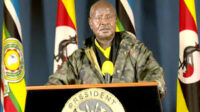In Senegal’s gold-rich Kedougou Region, women like Sadio Camara rely on mercury to extract gold from sediment, a practice that has become common in West Africa’s booming but largely unregulated informal mining sector. Camara, like many others, uses mercury with her bare hands and no protective gear while her children stand nearby. Despite being aware of the dangers, especially when the mercury is later burned to extract the gold, Camara believes small-scale exposure does not pose a significant threat. However, health experts warn that even minimal exposure to mercury, a potent neurotoxin, can lead to serious and irreversible damage.
Mercury use in artisanal and small-scale gold mining (ASGM) is widespread across West Africa, with women disproportionately affected. In Kedougou, women are deeply involved in gold processing, often mixing mercury-laced sediment without gloves or masks. Once the mercury is heated, it evaporates, leaving behind gold—and toxic fumes. Mercury exposure has been linked to severe health issues, including brain damage, developmental delays, tremors, and sensory impairments. The risk extends to unborn children, as mercury can cross the placenta, and to nursing infants via contaminated breast milk.
Environmental impact is equally severe. Mercury released during mining contaminates air, water, and soil, particularly after heavy rains. Rivers become polluted, fish are poisoned, and the toxin accumulates in the food chain, affecting entire communities. Women like Camara, who rely on rivers for daily chores such as laundry, cooking, and bathing their children, are especially vulnerable. “We are doing this because of ignorance and lack of means,” Camara says. “If the government knows what is good for us, come and show us.”
Despite the dangers, mercury remains popular because it is cheap, accessible, and effective. However, safer methods exist. Gravity separation using tools like shaking tables can eliminate the need for mercury. In 2020, the Senegalese government pledged to construct 400 mercury-free gold processing centers across the country. To date, only one has been built, in the village of Bantaco—15 miles from Camara’s home—and it remains largely unused due to logistical and accessibility challenges.
Experts argue that scaling up safer technologies is possible and necessary. Jen Marraccino of Pure Earth, an NGO combating mercury and lead poisoning in ASGM communities, notes that wider adoption of mercury-free methods can lower costs and build sustainable supply chains. “As demand increases in a region, the price of these technologies drops. There’s a real opportunity to grow solutions from within,” she says.
However, government action appears stalled. The director of Senegal’s artisanal and small-scale mining department has been unreachable and later confirmed that the department had been suspended, without offering further explanation. Meanwhile, NGOs like La Lumiere continue to raise awareness about the health and environmental risks of mercury and advocate for community-level interventions.
As gold prices remain high and economic pressures push more families into informal mining, the need for mercury-free solutions becomes more urgent. Without intervention, women like Camara and their children will continue to bear the brunt of a deadly trade-off between survival and safety.














Leave a comment